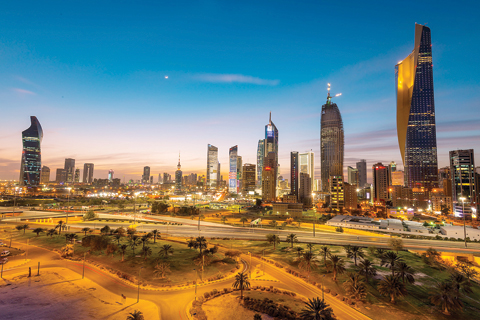KUWAIT: The health ministry has instructed its medical centers and hospitals that it has not raised medical fees for expatriates recently, after the increase which was implemented in October last year. The ministry insisted in a circular to senior officials that only doctors have the absolute right of prescribing medicines and their quantities to expatriate patients and that no changes had been made to these rules. The circular also insisted that the ministry had not increased the prices of drugs for expatriates or the charges at hospitals and medical centers.
The health ministry last October introduced major fee hikes for medical services offered to expatriates, but kept the services free for nationals. The increases included big hikes in several key medical services that include radiology, visits to hospitals and medical centers and admissions in public hospitals. All expatriates in the country are also required to pay a medical insurance fee when they stamp their residence permits or renew them.
In a related development, head of the National Assembly committee for the replacement of expatriates MP Khalil Al-Saleh yesterday said that reducing the number of expatriates in the country, who have topped three million, has become a "popular and government demand". He said that this goal should be fulfilled by dismissing expatriate workers who are not qualified, especially those in government jobs, because they constitute a burden on the country.
Saleh however said the panel does not support sacking highly-skilled expatriate workers and those with long experiences, especially in fields where there are not sufficient Kuwaitis. The lawmaker said any decision on foreign workers should exclude people with rare expertise even if they reach the age of 65. The committee was set up by the Assembly to press the government to speed up measures to replace expatriate employees in the government with Kuwaiti graduates.
In another development, conflicting reports emerged yesterday over plans to impose value added tax (VAT) decided by the Gulf Cooperation Council (GCC), which has asked the six member states to apply the five-percent tax any time this year. Saudi Arabia and UAE already began imposing it from January. Finance Minister Nayef Al-Hajraf told reporters that he expects the Assembly to approve the VAT draft law at the start of the next term in October. The minister said that although the draft law was sent to the Assembly with urgency, he said he does not believe it will be approved in this term, which ends next month.
But head of the Assembly budgets committee MP Adnan Abdulsamad said yesterday that the panel was informed by the finance ministry that it has delayed plans to impose VAT till 2021. He however said the ministry called for speeding up plans to impose selective excise duty on cigarettes and power and soft drinks, whose prices were raised by 50 to100 percent by GCC states. The lawmaker said the ministry believes that introducing these selective taxes will earn state coffers some KD 200 million a year.
Abdusamad said that the ministry's projections for taxes and charges in the budget of 2018/2019 are KD 551 million, an increase of 11 percent from the previous year. He said total revenues are projected at KD 15 billion including KD 13 billion in oil revenues, adding that although oil prices have rebounded, there are fears they may drop again.
Hajraf also said it is important for GCC countries to keep abreast of swift global economic development through uniform economic visions. Addressing a one-day meeting of the GCC Financial and Economic Cooperation Committee held in Kuwait yesterday, Hajraf called on GCC countries to harness all capabilities and potentials to fulfill the objectives of GCC leaders by creating a strong economic bloc able to vie with other global economic groups. This meeting is considered a means and tool for attaining Gulf economic cooperation and translating GCC directives into action programs and turning ambitions into tangible reality, he said.
GCC Secretary General Abdullatif Al-Zayani lauded Kuwait's sincere efforts to cement and consolidate Gulf integration and cooperation among GCC member states in various fields. He pointed out the never-ending and fruitful efforts of the GCC ministers of finance in line with the GCC leaders' directives, with a view to promoting inter-Gulf cooperation and establishing the basics of the Gulf economy.
By B Izzak











